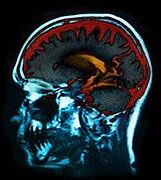Only Six New Pediatric Neurosurgeons A Year
Although the infrastructure exists to train more than 20 pediatric neurosurgeons a year in the United States, the current system is only producing approximately six surgeons a year with American Board of Pediatric Neurological Surgery certification, raising concerns about the sufficiency of expertise in this area, according to an article published in the June issue of the Journal of Neurosurgery: Pediatrics.

THURSDAY, July 3 (HealthDay News) -- Although the infrastructure exists to train more than 20 pediatric neurosurgeons a year in the United States, the current system is only producing approximately six surgeons a year with American Board of Pediatric Neurological Surgery certification, raising concerns about the sufficiency of expertise in this area, according to an article published in the June issue of the Journal of Neurosurgery: Pediatrics.
Susan R. Durham, M.D., and Scott A. Shipman, M.D., of Dartmouth Medical School in Hanover, N.H., analyzed data on gender, residency and fellowship among graduates of the 22 Accreditation Council for Pediatric Neurosurgical Fellowships programs.
Of the 143 graduates who met the study criteria, which excluded those practicing in Canada and those who did not meet the Council's requirements, only 70 (49 percent) were certified, with a mean 5.1 years between finishing fellowships and attaining certification, the report indicates. Once the 57 surgeons who are not yet expected to be sitting for the boards are excluded from the analysis, the rate of American Board of Pediatric Neurological Surgery certification is 66.3 percent.
"The results of this study suggest that the future pediatric neurosurgical workforce may be insufficient to meet the demands of increasing sub-specialization in neurosurgery," the authors write. "Pediatric neurosurgery may be nearing a crisis in its ability to train and retain the future pediatric neurosurgical workforce. This may leave the future neurosurgical care of our nation's children at risk."
AbstractFull Text (subscription or payment may be required)
Copyright © 2008 ScoutNews, LLC. All rights reserved.
Major congenital malformations not linked to first trimester tetracycline use
November 22nd 2024A large population-based study found that first-trimester tetracycline exposure does not elevate the risk of major congenital malformations, though specific risks for nervous system and eye anomalies warrant further research.